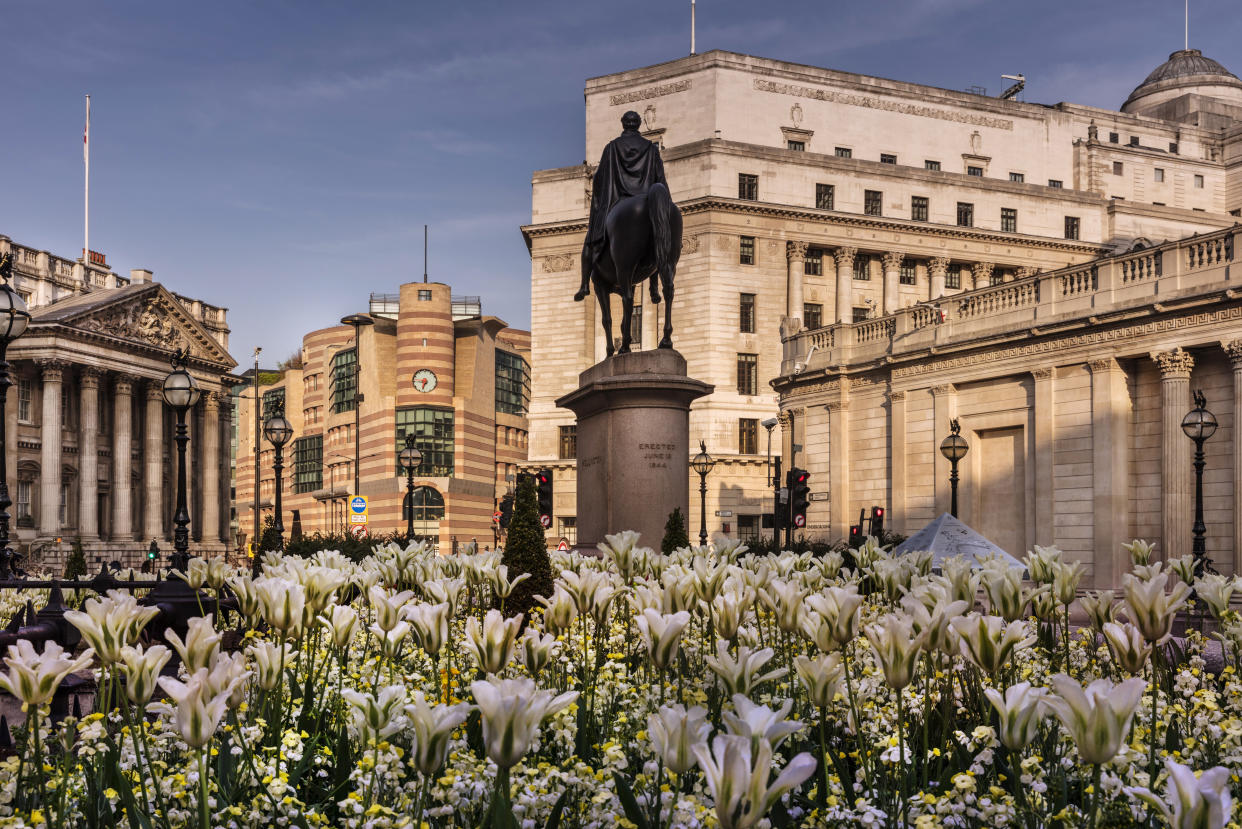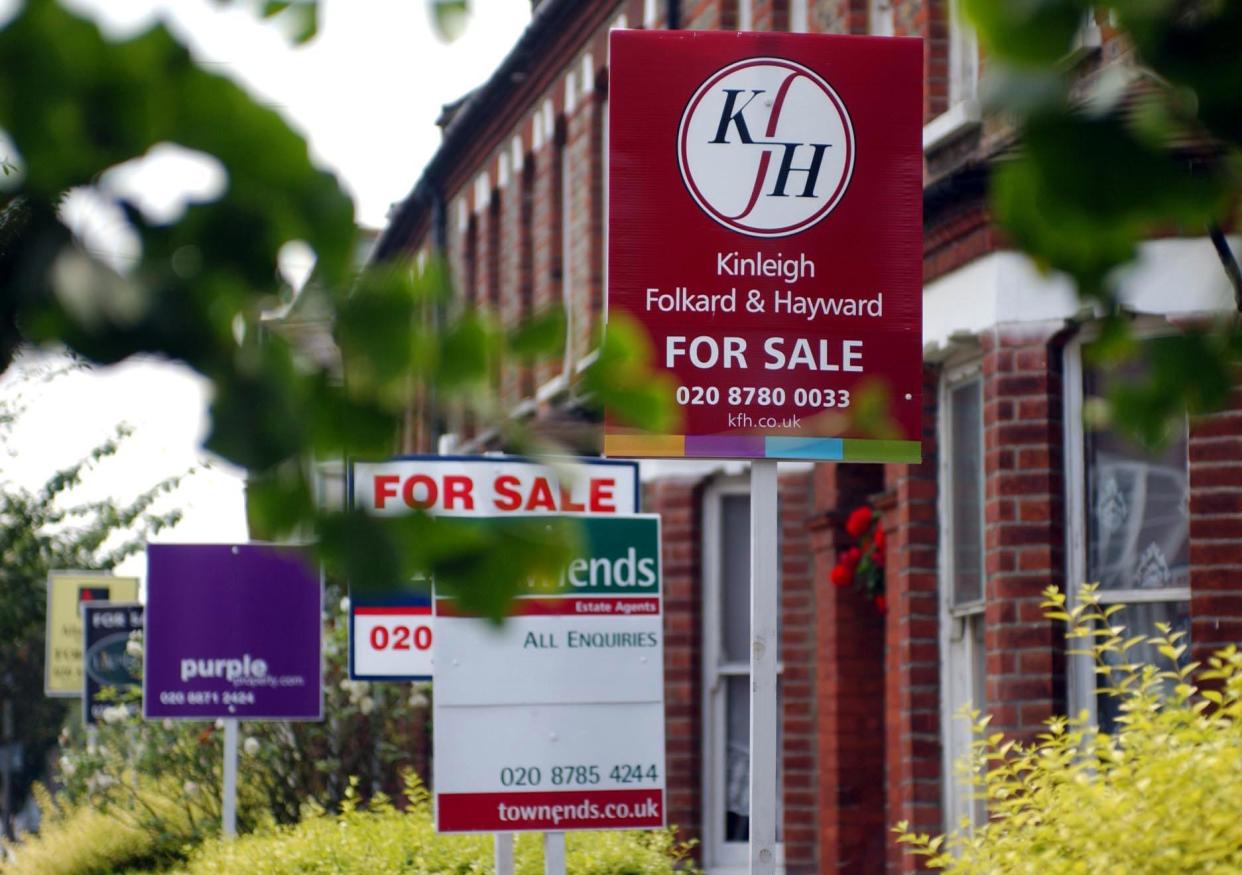How Bank of England’s interest rate rise will affect mortgages and house prices

The Bank of England (BoE) delivered its biggest interest rates increase in 27 years in an effort to tackle soaring inflation as the cost of living squeezes households.
Threadneedle Street hiked rates by 50 basis points (bps) on Thursday, despite concerns that Britain's economy is headed for a recession.
The 0.5% lift takes the Bank Rate from 1.25% to 1.75%. That will see the cost of mortgages rise for millions of homeowners.
Industry experts estimate that around 40% of mortgages will go up over the next year, so more people will be forced to make higher monthly payments.
According to the BoE, a homeowner with a £250,000 ($302,022) tracker mortgage on a 25-year term will be paying an extra £62 a month after Thursday's announcement.
Read more: Bank of England announces biggest interest rate hike in 27 years
UK inflation hit 9.4% in the year to June, and the Bank now expects prices to top 13% before the end of the year — well above its 2% target — and for it to remain elevated in 2023.
As the central bank battles a slowing economy, the ever-tightening cost of living crisis and rampant inflation, here's how that affects your mortgages and house prices.
Watch: How does inflation affect interest rates?
Mortgages
Threadneedle Street increased rates to 1.75% on 4 August — the sixth rise in a row since December 2021, when the Bank Rate stood at just 0.1%.
Analyst say the Bank's move to hike rates by 50bps will "pile more misery" on nearly 2 million people with variable rate mortgages as they battle the rising cost of living.
Alastair Douglas, CEO of TotallyMoney said new deals could become more expensive and advised the "one in three homeowners whose fixed-rate deal is soon coming to an end" to plan ahead.
Read more: Mortgages harder to get as lenders factor in cost of living rise
Figures show that just over a fifth of all mortgage holders in the UK are on a variable rate deal, meaning around 1.9 million homeowners could be hit with a rates rise.
At present around 850,000 are on a tracker deal and 1.1 million are stuck on their lender’s variable rate.
Tracker mortgages directly follow the Bank's base rate, meaning people with this type of mortgage will see an immediate change. Standard variable rates follow a rate set by the lender, which usually closely follows the BoE’s interest rate.
According to credit broker TotalMoney and personal finance website Moneycomms for the average UK house costing £270,708, with a 75% loan-to-value, a 50bps hike could see mortgage repayments cost £196 per month more than in November 2021.
Read more: Mortgage rate rises to slow down UK house price growth
UK Finance said the average UK homeowner has £131,000 of mortgage debt, meaning those on a tracker deal could see their mortgage costs jump by £396 a year.
That would leave the 1.9 million on a variable rate mortgage with an "estimated £752m hike" in their annual mortgage bills just from this rate rise alone, Laura Suter, head of personal finance at AJ Bell said.
Aneisha Beveridge, head of research at Hamptons, warned that additional rate hikes will put even more pressure on households.
"The scale of house price growth and mortgage debt taken on by households means that fairly limited base rate rises by historical standards have the ability to add significant pressure onto household finances," she said.

House prices
Some mortgage experts anticipate a 50bps hike "may start to dampen recent record house prices".
Michelle Stevens, banking and mortgages expert at personal finance comparison site, finder.com, said: "More expensive mortgages, coupled with the ongoing cost of living crisis and a cool-down in the post-pandemic house moving rush, may make home buyers more reluctant to make offers at or above a property’s asking price, or get into bidding wars with other potential buyers."
That corresponds with data from property website Zoopla, which points to a slowing house price growth as mortgage rates rise and home buyers become more cautious.
Read more: How interest rates are affecting UK mortgages
Zoopla estimates that the pace of house price growth will slow to just 5% by the end of the year, with the average UK house price reaching nearly £260,000 by December.
That is up from the current £256,600 price tag home buyers are facing to get on the property ladder.
Despite house price growth falling to the lowest rate recorded in 15 months as surging mortgage rates push down demand, prices are still up on an annual base.
The latest figures from Nationwide Building Society (NBS.L) show house price growth hit 11% in July to £207,209, a small jump from the 10.7% recorded in June.
Read more: UK property: How house prices are changing where you live
However the annual rise could be masking falling buyer demand as the prospect of further interest rate increases on the horizon could make people think twice about whether they can afford to move home.
Analysts have said that the so-called race for space fuelled the property market during the pandemic but there are signs this is starting to cool following the end of the stamp duty tax.
"Higher mortgage rates will start to impact demand from new buyers," Richard Donnell, executive director of research at Zoopla said.


